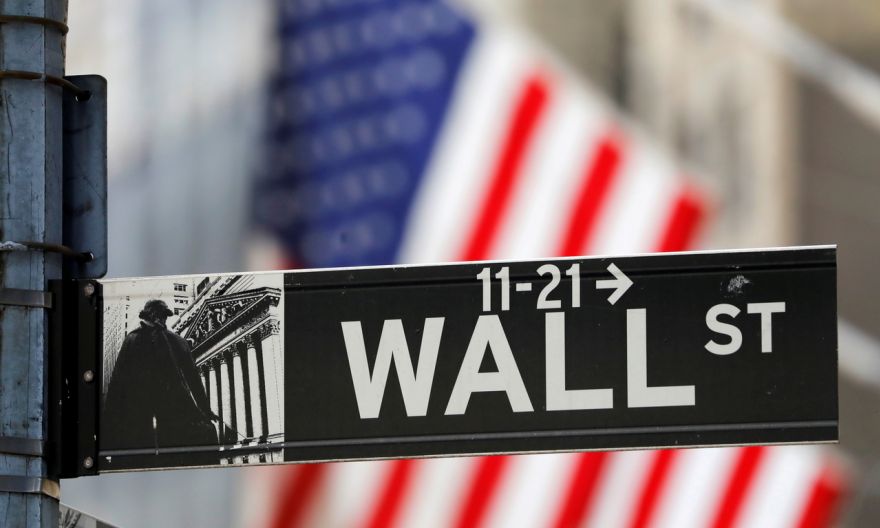Wall Street’s IPO fee machine under threat post-China crackdown

NEW YORK (BLOOMBERG) – China’s regulatory crackdown threatens to reverse a surge in underwriting fees for United States investment banks like Goldman Sachs Group, Bank of America (BofA) and Morgan Stanley.
Companies based in China have been the most prolific foreign issuers of equity in New York during the Covid-19 pandemic. But the budding US$50 billion (S$68 billion) flow of US initial public offerings (IPOs) and secondary stock sales is at risk after new regulatory scrutiny surrounding cyber security firms.
“China’s increased oversight of overseas listings by Chinese companies, announced by the State Council on July 6, could halt unicorn listings in H2 in Hong Kong and the US,” Bloomberg Intelligence analyst Sharnie Wong wrote in a note. “Their combined share of Chinese IPOs may drop to less than 40 per cent of deal value in H2 from 55 per cent in H1, assuming deal value halves sequentially.”
if( window.innerWidth<=740 && document.getElementById("dfp-ad-imu1-mobile") != null) {
var element = document.getElementById("dfp-ad-imu1");
element.parentNode.removeChild(element);
document.getElementById("dfp-ad-imu1-mobile").id = "dfp-ad-imu1";
}
googletag.cmd.push(function() {
googletag.display("dfp-ad-imu1");
});
Investment banks have raised US$49.2 billion in US stock offerings over the past year for companies based in China and their largest holders, a 452 per cent increase from the previous 12 months. That includes more than US$23 billion in IPOs and another US$26 billion through secondary offerings.
The heavier deal flow has provided an uptick in fees to the banks. For example, Didi Global’s US$4.4 billion IPO alone generated US$89 million in fees for a syndicate that included Goldman, Morgan Stanley and JPMorgan Chase among other US underwriters.
Some banks are more exposed than others. Over the past year, Goldman has led all banks with a 17 per cent share of this market, according to data compiled by Bloomberg, with BofA and Morgan Stanley also in the top three.
if( window.innerWidth<=740 && document.getElementById("dfp-ad-midarticlespecial-mobile") != null) {
var element = document.getElementById("dfp-ad-midarticlespecial");
element.parentNode.removeChild(element);
document.getElementById("dfp-ad-midarticlespecial-mobile").id = "dfp-ad-midarticlespecial";
}
googletag.cmd.push(function() {
googletag.display("dfp-ad-midarticlespecial");
});
Of course, this is a drop in the bucket: Goldman made about US$311 million in fees from these deals, compared with US$55.6 billion in net revenue for the 12 months to June 30.
Goldman Sachs declined to comment. Representatives for BofA and Morgan Stanley did not immediately return a request for comment.
Still Attractive
While the past year’s momentum might be in jeopardy, a strong pipeline of Chinese companies should continue to advance US listing plans. That is according to Ms Pruksa Iamthongthong, senior investment director of Asian equities for Aberdeen Standard Investments.
“For a mainland company, the key considerations would be whether the US remains an attractive IPO destination, given its market depth and breadth, and whether a listing closer to home in Hong Kong might be a better alternative,” she said.
The Hong Kong market could prove to be less of a geopolitical risk than New York for companies looking to go public outside of mainland China, Ms Iamthongthong added.
Since Didi debuted on June 30, no Chinese company has successfully priced a US IPO with proceeds of more than US$22 million. Eight of the last 10 cross-border listings from China are trading below their IPO price, a sign of how hard IPOs have got hit by the growth in regulatory pressure.
The latest deal that appears to be stung by the crackdown and ensuing sell-off is Hello Inc. The Shanghai software maker withdrew its US listing on Tuesday, the day it was expected to debut. But some of these deals could still get done. And if they shift to Hong Kong, the Western banks will still benefit – although with lower fees.
After companies go public, particularly from the technology sector that has been the focus of China’s crackdown, they are often seen as candidates for secondary offerings. This has traditionally promised more fees for US underwriters.
The largest China-US secondary offering of the past year, a US$4.2 billion offering in Pinduoduo, brought in US$47 million in fees that were paid almost entirely to just Goldman and BofA, according to data compiled by Bloomberg.
Equity capital markets is just the start. The regulatory crackdown has also reduced the use of debt to fund overseas mergers and acquisitions to a seven-year low as the White House pushes Wall Street to more broadly reconsider its presence in China and Hong Kong.
